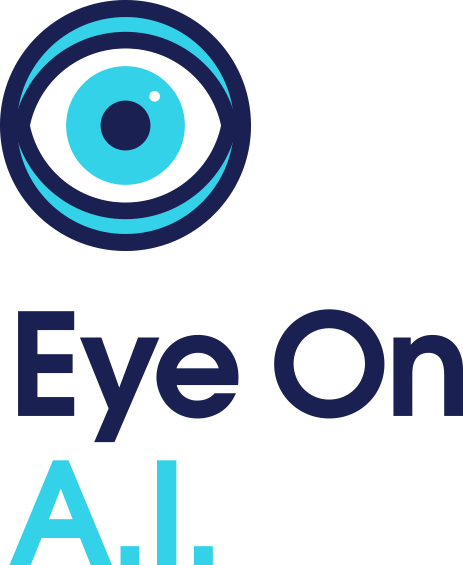Week Ending 11.11.18
RESEARCH WATCH: 11.11.18
Over the past week, 25 new papers were published in "Computer Science".
The paper discussed most in the news over the past week was by a team at University of California, Berkeley: "Audio Adversarial Examples: Targeted Attacks on Speech-to-Text" by Nicholas Carlini et al (Jan 2018), which was referenced 12 times, including in the article Artificial Intelligence Hits the Barrier of Meaning in New York Times. Pedro Domingos (University of Washington), who is not part of the study, said "People worry that computers will get too smart and take over the world, but the real problem is that they’re too stupid and they’ve already taken over the world." The paper also got the most social media traction with 1997 shares.
Leading researcher Ian Goodfellow (Google) published "New CleverHans Feature: Better Adversarial Robustness Evaluations with Attack Bundling".
Over the past week, 30 new papers were published in "Computer Science - Artificial Intelligence".
The paper discussed most in the news over the past week was "Artificial Intelligence and its Role in Near Future" by Jahanzaib Shabbir et al (Apr 2018), which was referenced 6 times, including in the article Functions Of Artificial Intelligence in BostonCommons.net. The paper got social media traction with 20 shares. The investigators explain the modern AI basics and various representative applications of AI.
Leading researcher Pieter Abbeel (University of California, Berkeley) came out with "Modular Architecture for StarCraft II with Deep Reinforcement Learning".
Over the past week, 22 new papers were published in "Computer Science - Computers and Society".
The paper discussed most in the news over the past week was by a team at University of Oxford: "Third Party Tracking in the Mobile Ecosystem" by Reuben Binns et al (Apr 2018), which was referenced 108 times, including in the article Children’s apps contain an average of 7 third-party trackers, study finds in Sophos Anti Virus. The paper author, Max Van Kleek (University of Oxford), was quoted saying "most people who use life360 probably aren't aware that these third parties are embedded in the app and collecting information about them". The paper got social media traction with 124 shares. The investigators present an empirical study of the prevalence of third - party trackers on 959,000 apps from the US and UK Google Play stores.
Over the past week, 18 new papers were published in "Computer Science - Human-Computer Interaction".
The paper discussed most in the news over the past week was "The Role of Emotion in Problem Solving: First Results from Observing Chess" by Thomas Guntz (PERVASIVE) et al (Oct 2018), which was referenced 1 time, including in the article How emotions underlie even the coldest human calculations in Technology Review.
Over the past week, 13 new papers were published in "Computer Science - Multiagent Systems".
· Over the past month, 44 new articles were published — 27% higher than the average monthly rate. The new articles cover 12 of 15 topics in this space of 496 articles.
· Policies & Agent Reinforcement Learning was the topic with the largest increase in research activity this month, with about three times its average rate of 2.46 papers/month. Activity in the topic Swarm & Collective remained strong comprising 11% of new articles being published. Meanwhile, there was a significant drop off in research on Agent-based & Energywhich was averaging 4.85 papers/month but only saw 2 new papers over the past month.
· Published work includes "The Dynamics of Norm Change in the Cultural Evolution of Language" by Roberta Amato et al published in the prestigious journal PNAS.
Over the past week, 27 new papers were published in "Computer Science - Neural and Evolutionary Computing".
The paper discussed most in the news over the past week was "Progressive Growing of GANs for Improved Quality, Stability, and Variation" by Tero Karras et al (Oct 2017), which was referenced 19 times, including in the article AI Will Forever Change How We Create and Find Truth in Images in Artsy. The paper got social media traction with 162 shares. On Twitter, @jekbradbury said "But I’m concerned about the small sizes. Are the ImageNet experiments conducted at full size? (There are no samples shown.) GANs have successfully generalized to larger and larger images over the last 2 years, culminating in can transformers do this too?".
Over the past week, 34 new papers were published in "Computer Science - Robotics".
The paper discussed most in the news over the past week was "Deep sequential models for sampling-based planning" by Yen-Ling Kuo et al (Oct 2018), which was referenced 23 times, including in the article New Computer Model Helps Robots Navigate Like Humans in Machine Design. The paper author, Andrei Barbu (Purdue University), was quoted saying "Just like when playing chess, these decisions branch out until [the robots] find a good way to navigate. But unlike chess players, [the robots] explore what the future looks like without learning much about their environment and other agents".

